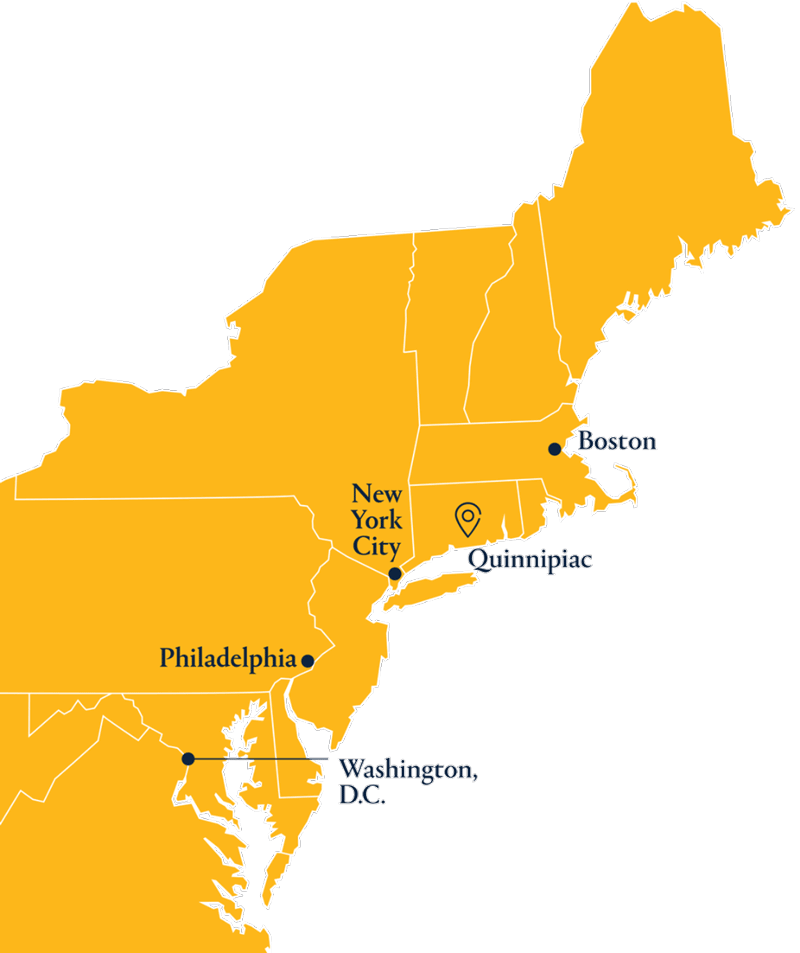- College of Arts and Sciences: 1,489
- School of Business: 1,423
- School of Communications: 610
- School of Computing and Engineering: 426
- School of Health Sciences: 1,424
- School of Nursing: 836
- Non-degree students: 40
In Fall 2023, Quinnipiac enrolled 6,248 undergraduate students and 2,670 graduate, law and medical students.
- Undergraduate
- Graduate
- College of Arts and Sciences: 40
- School of Business: 477
- School of Communications: 146
- School of Computing and Engineering: 33
- School of Education: 265
- School of Health Sciences: 698
- School of Law: 360
- School of Medicine: 384
- School of Nursing: 265
- Non-degree students: 2




